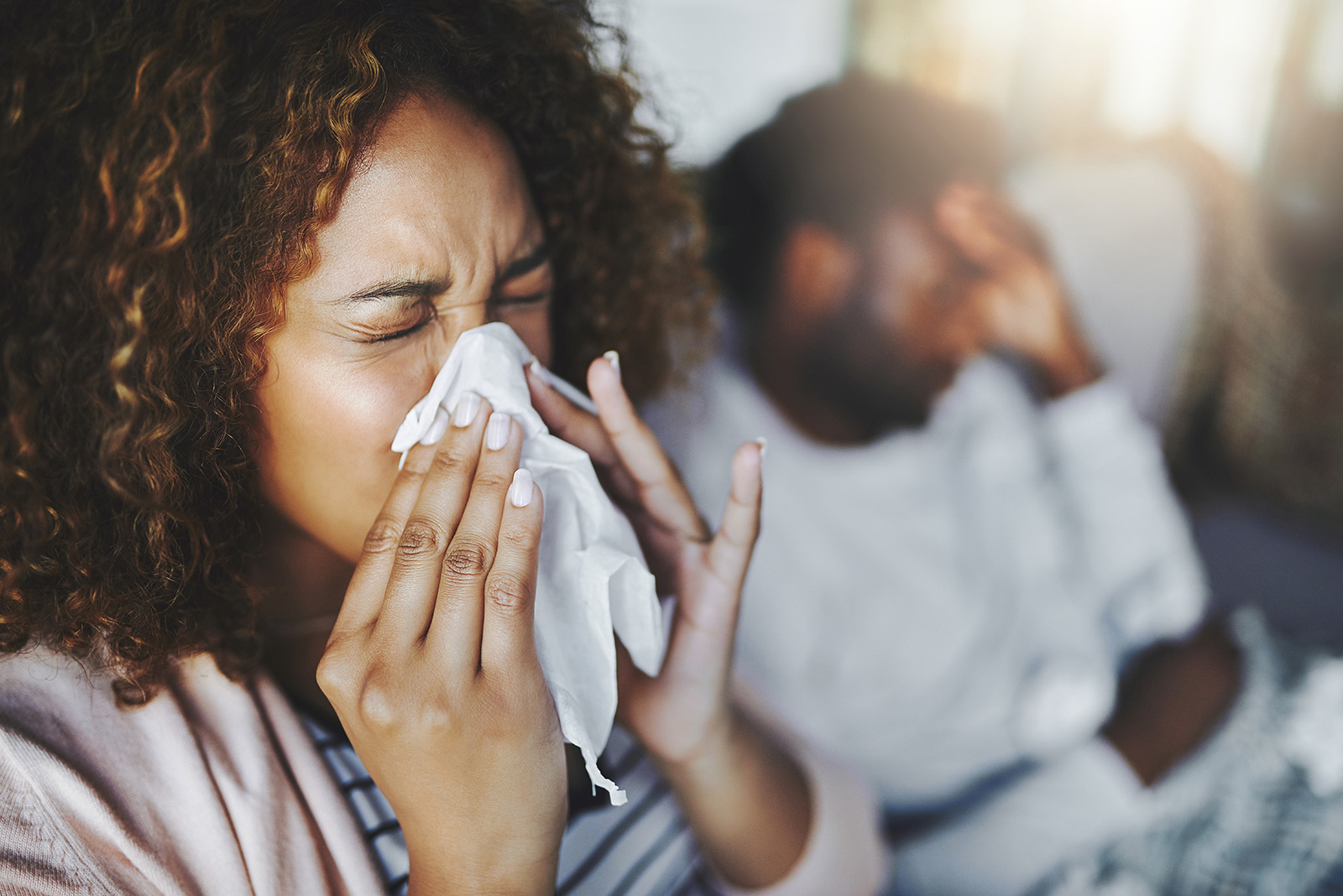What the COVID-19 symptoms are, including Long COVID, how fast they appear, and what to do if you have any symptoms.
Symptoms can include one or more of the following:
- a new or worsening cough
- sneezing and runny nose
- a fever
- temporary loss of smell or altered sense of taste
- sore throat
- shortness of breath
- fatigue/feeling of tiredness.
Less common symptoms may include:
- diarrhoea
- headache
- muscle pain or body aches
- nausea
- vomiting
- malaise — a general feeling of discomfort, illness or unease
- chest pain
- abdominal pain
- joint pain
- confusion or irritability.
A note on less common symptoms
These less common symptoms almost always occur with one or more of the common symptoms.
These symptoms do not necessarily mean you have COVID-19. The symptoms are like other illnesses that are much more common, such as colds and flu.
Shortness of breath is a sign of possible pneumonia and requires immediate medical attention.
If you have any of these symptoms, contact your doctor, Healthline on 0800 358 5453 or your iwi health provider.
Time for symptoms to appear
With Omicron, people who get symptoms will likely develop them within 3 to 8 days after infection.
Sometimes people may have COVID-19, but not have any symptoms.
Some people with COVID-19 can pass it on to others 1 or 2 days before showing symptoms.

If you have cold, flu or COVID-19 symptoms, get a test as soon as you start to feel unwell. Doing a test and reporting the result in My Covid Record means you can get the help you need as early as possible.
Call:
- your doctor or nurse
- Healthline for free on 0800 358 5453
- your iwi health provider, or
- a community-based testing location
- if you are outside New Zealand, call +64 9 358 5453 or your doctor.
If you test positive
While you have symptoms:
- Stay home. Do not go to work or school. Do not socialise.
- Wash your hands often.
- Sneeze and cough into your elbow, and disinfect shared surfaces often.
If health authorities tell you to self-isolate, do so immediately. If you are waiting for test results you will also need to self-isolate.
If you have symptoms when your self-isolation period ends
Some people who have tested positive for COVID-19 can still be infectious after 7 days. If you are still sick at the end of your self-isolation period, stay home until you are well and for 24 hours after you no longer have symptoms.
